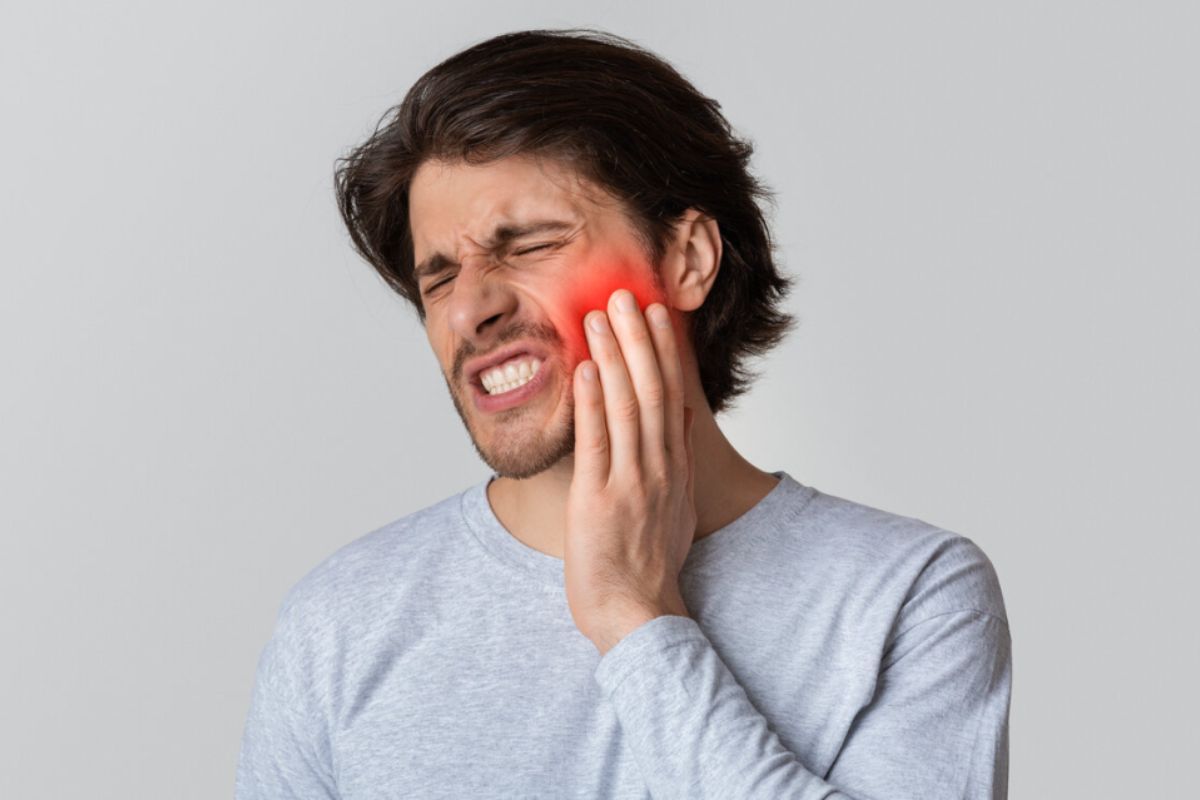
Best Treatments for Tooth Sensitivity
Does sipping an ice-cold drink or enjoying your morning coffee make you wince in pain?
If yes, you may be experiencing tooth sensitivity, also known as dentin hypersensitivity. This condition affects millions worldwide and can turn simple pleasures into a daily source of discomfort.
The good news? With the right dentist-approved treatments for sensitive teeth, you can reduce pain, protect your smile, and even prevent future sensitivity.
The good news? With the right dentist-approved treatments for sensitive teeth, you can reduce pain, protect your smile, and even prevent future sensitivity.
Causes and Why Teeth Become Sensitive
Tooth sensitivity happens when the protective enamel on your teeth wears down or gums recede, exposing the dentin. This layer contains tiny tubules that connect to nerves, allowing teeth to react sharply to triggers such as hot, cold, sweet, or acidic foods.
Common causes include:
- Brushing too hard – Aggressive brushing erodes enamel.
- Cracked or chipped teeth – Exposes inner layers and nerves.
- Recent dental treatments, such as fillings, crowns, or whitening, may cause temporary sensitivity.
- Whitening products – Overuse can weaken enamel.
- Acidic foods & drinks – Citrus fruits, sodas, and vinegars damage enamel.
- Gum recession – Often due to gum disease or aging.
- Plaque build-up – Leads to enamel erosion and gum irritation.
Best Dentist-Approved Treatments for Sensitive Teeth
Professional Dental Solutions
If sensitivity is interfering with daily life, a dentist can recommend reliable, long-lasting treatments:
- Desensitizing Toothpaste – Brands such as Sensodyne, Colgate Sensitive, and Oral-B Gentle Foam help block nerve signals over time.
- Fluoride Treatments – According to the American Dental Association (ADA), fluoride strengthens enamel and is one of the most effective treatments for sensitive teeth.
- Dental Bonding or Sealants – Protect exposed dentin and root surfaces.
- Mouth Guards – Prevent sensitivity caused by night-time grinding or clenching.
- Root Canal Therapy – For severe cases where the tooth nerves are damaged.
- Lifestyle Adjustments – Switch to a soft-bristle brush, avoid acidic foods, and schedule regular dental visits.
At-Home Sensitive Teeth Remedies
Some natural remedies may offer short-term relief, but they should not be used as a substitute for professional care.
- Salt Water Rinse – Helps reduce bacteria and inflammation.
- Clove Oil/Gel – Natural numbing properties for temporary comfort.
- Oil Pulling – Traditional method believed to improve oral hygiene.
- Honey & Warm Water – May soothe gums due to antibacterial properties.
- Garlic – Contains antibacterial qualities, but limited proof for sensitivity.
Prevention: How to Get Rid of Tooth Sensitivity Long-Term
The best way to manage sensitive teeth is through prevention. Here are practical, dentist-approved tips:
- Brush your teeth twice daily with fluoride toothpaste and a soft-bristle toothbrush.
- Floss daily to prevent plaque build-up.
- Limit acidic foods, sodas, and sugary snacks.
- Avoid excessive use of whitening products.
- Wear a night guard if you grind your teeth at night.
- Visit your dentist regularly for early detection and treatment.
FAQs on Tooth Sensitivity
1. Can sensitive teeth go away?
Mild sensitivity can be improved with proper care and the use of desensitizing toothpaste. Persistent pain usually requires professional treatment.
2. What foods should I avoid with sensitive teeth?
Reduce your intake of acidic foods (such as citrus, tomatoes, and vinegar), carbonated drinks, and sugary snacks that can erode your enamel.
3. How to get rid of tooth sensitivity quickly?
Use desensitizing toothpaste, avoid extreme food temperatures, and rinse with salt water. For long-lasting relief, see your dentist.
Mild sensitivity can be improved with proper care and the use of desensitizing toothpaste. Persistent pain usually requires professional treatment.
2. What foods should I avoid with sensitive teeth?
Reduce your intake of acidic foods (such as citrus, tomatoes, and vinegar), carbonated drinks, and sugary snacks that can erode your enamel.
3. How to get rid of tooth sensitivity quickly?
Use desensitizing toothpaste, avoid extreme food temperatures, and rinse with salt water. For long-lasting relief, see your dentist.
Take Charge of Your Smile
1. Can sensitive teeth go away?
Mild sensitivity can be improved with proper care and the use of desensitizing toothpaste. Persistent pain usually requires professional treatment.
2. What foods should I avoid with sensitive teeth?
Reduce your intake of acidic foods (such as citrus, tomatoes, and vinegar), carbonated drinks, and sugary snacks that can erode your enamel.
3. How to get rid of tooth sensitivity quickly?
Use desensitizing toothpaste, avoid extreme food temperatures, and rinse with salt water. For long-lasting relief, see your dentist.
Mild sensitivity can be improved with proper care and the use of desensitizing toothpaste. Persistent pain usually requires professional treatment.
2. What foods should I avoid with sensitive teeth?
Reduce your intake of acidic foods (such as citrus, tomatoes, and vinegar), carbonated drinks, and sugary snacks that can erode your enamel.
3. How to get rid of tooth sensitivity quickly?
Use desensitizing toothpaste, avoid extreme food temperatures, and rinse with salt water. For long-lasting relief, see your dentist.
Tooth sensitivity doesn’t have to control your life. With the right mix of professional treatments and at-home care, you can protect your enamel, reduce discomfort, and enjoy your favorite foods again.
If tooth sensitivity is affecting your daily routine, don’t ignore it. It may signal an underlying dental issue. Schedule a consultation with Durrani’s Dental Clinic at +92-21-37227441 today to get a personalized treatment plan for long-term relief.
If tooth sensitivity is affecting your daily routine, don’t ignore it. It may signal an underlying dental issue. Schedule a consultation with Durrani’s Dental Clinic at +92-21-37227441 today to get a personalized treatment plan for long-term relief.

